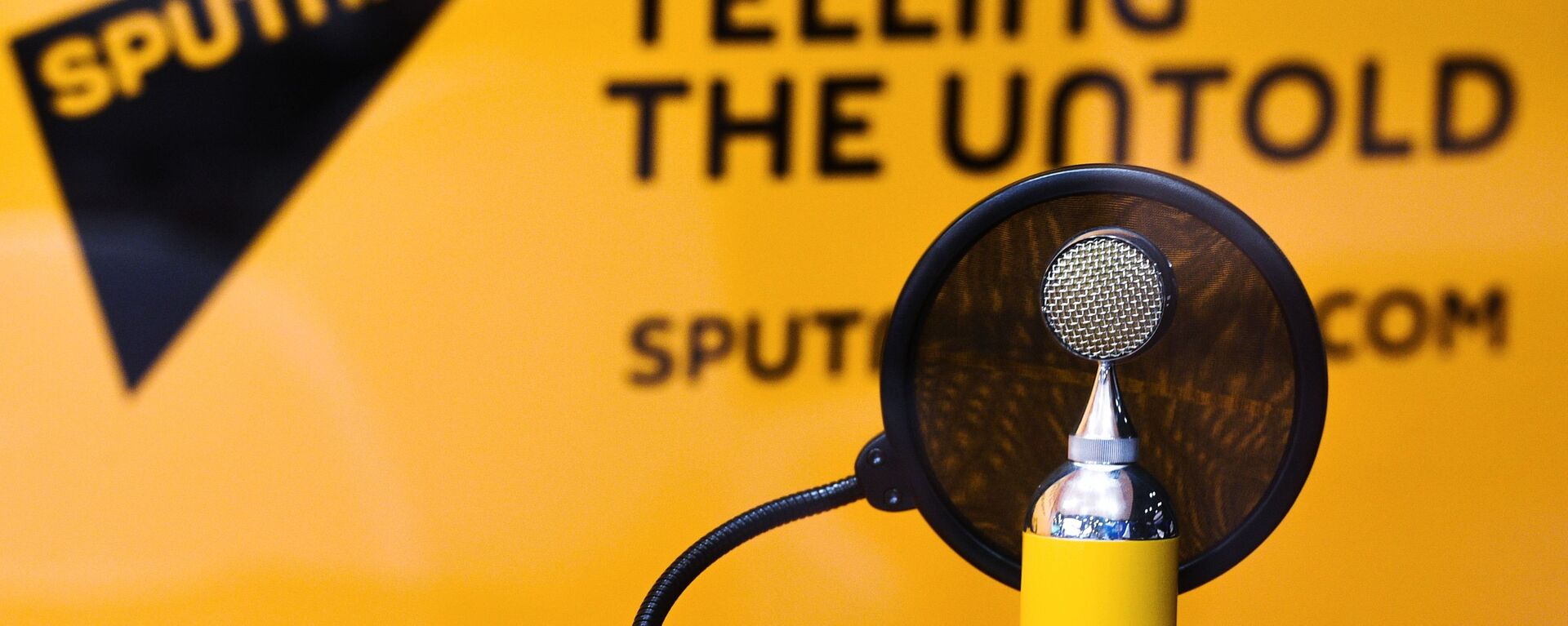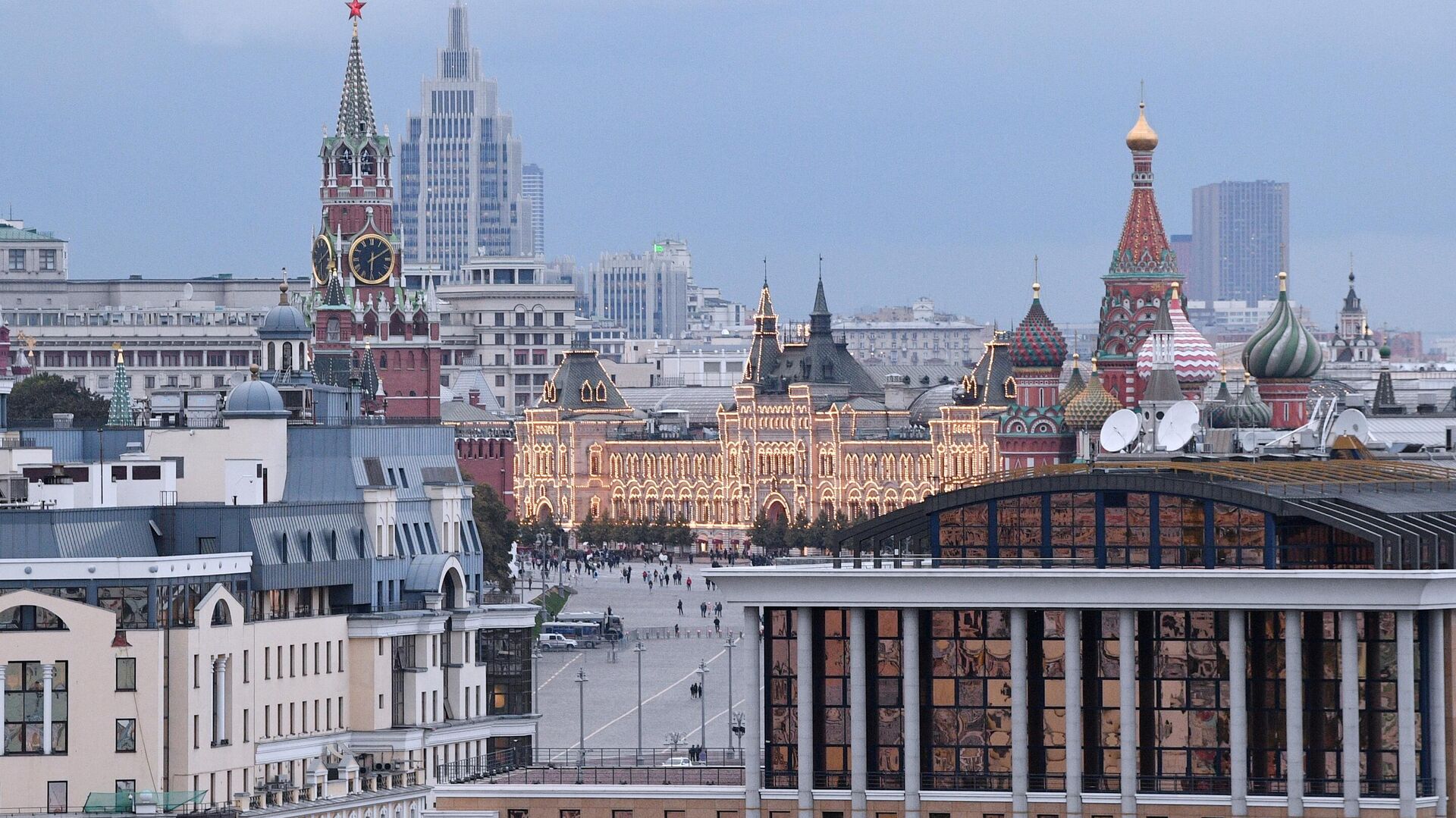https://sputnikglobe.com/20230914/moscow-requests-moldova-stop-political-persecution-of-russian-language-media-1113366527.html
Moscow Requests Moldova Stop Political Persecution of Russian-Language Media
Moscow Requests Moldova Stop Political Persecution of Russian-Language Media
Sputnik International
Moscow has demanded that Chisinau cease politically motivated persecution of Russian-language media resources and observe international obligations in the field of freedom of speech and media after Moldova expelled the head of the Sputnik desk in Moldova, Vitaly Denisov, the Russian Foreign Ministry said on Thursday.
2023-09-14T11:24+0000
2023-09-14T11:24+0000
2023-09-14T11:26+0000
world
russia
russian foreign ministry
moscow
vitaly denisov
moldova
media
freedom of speech
rossiya segodnya
https://cdn1.img.sputnikglobe.com/img/07e7/08/06/1112419155_0:215:2879:1834_1920x0_80_0_0_f3526ea8072ad982ea96b084a145f608.jpg
"The Russian side regarded this step as part of the anti-Russian campaign officially launched by Kishinev. They demanded that the Moldovan side stop the politically motivated persecution of Russian-language media resources and comply with international obligations in the field of freedom of speech and media and ensuring the rights of journalists," the foreign ministry said in a statement. The foreign ministry also said that such an "unfriendly" step by Kishinev would be addressed by Moscow, including by lodging a protest to Moldova's Charge d'Affaires Sergiu Goncharenko following Denisov’s expulsion from the country. On Wednesday, Denisov was forcibly taken to the airport in the Moldovan capital and put on the first flight to Russia after being handed a deportation order dated September 8. Moldova accused the journalist of being a national security threat. Denisov told Sputnik he was considering appealing his expulsion with the European Court of Human Rights in Strasbourg. The journalist has also been barred from entering Moldova for 10 years. He said the Moldovan migration service did not explain why he was deemed a national security risk. Kishinev also cited national security concerns as the reason for blocking Sputnik Moldova's radio broadcasting and websites after Russia launched its military operation in Ukraine in February 2022.Moldovan Party of Socialists (PSRM) slammed this move stressing that the expulsion of the head of Sputnik Moldova, Vitaly Denisov, from the country is a curtsy towards the West, violating human rights and democratic principles."The PSRM categorically denounces the unlawful deportation of the head of the Sputnik Moldova agency, Vitaly Denisov. The criminal regime of [Moldovan President Maia] Sandu has violated all possible notions of democracy, human rights and freedom of the press. Trying to please [its] Western masters in everything, the current regime disgraces and humiliates Moldova in the international arena," the party said in a statement.The party pointed out that Denisov had all the necessary work permits."To expel someone without letting them know the reason, without letting them gather their belongings is a gesture worthy only of a criminal, sadist and inhumane regime. The PSRM expresses solidarity with the agency's journalists as well as with all media workers, human rights activists and ordinary people hurt by the criminal regime of Sandu," the statement read.Earlier Director general of Rossiya Segodnya, Sputnik's parent media group, Dmitry Kiselev criticized the expulsion of Sputnik Moldova Chief and stressed that destructive policy of Kishinev crosses all adequate boundaries of the state relations.In August, a law on the creation of a center for strategic communications and the fight against disinformation entered into force in Moldova. The law was allegedly aimed at protecting Moldovan citizens from disinformation and manipulation at the national level.In the same month, 45 employees of the Russian embassy, together with their families, left Moldova in accordance with the decision of the Moldovan Foreign Ministry to reduce the staff of the Russian diplomatic mission.
https://sputnikglobe.com/20230913/sputnik-moldova-head-says-will-be-deported-from-moldova-got-10-year-entry-ban-1113333187.html
russia
moscow
moldova
Sputnik International
feedback@sputniknews.com
+74956456601
MIA „Rossiya Segodnya“
2023
Sputnik International
feedback@sputniknews.com
+74956456601
MIA „Rossiya Segodnya“
News
en_EN
Sputnik International
feedback@sputniknews.com
+74956456601
MIA „Rossiya Segodnya“
Sputnik International
feedback@sputniknews.com
+74956456601
MIA „Rossiya Segodnya“
media, freedom of speech, persecution of russian journalists, crack down on free speech in moldova
media, freedom of speech, persecution of russian journalists, crack down on free speech in moldova
Moscow Requests Moldova Stop Political Persecution of Russian-Language Media
11:24 GMT 14.09.2023 (Updated: 11:26 GMT 14.09.2023) MOSCOW (Sputnik) - Moscow has demanded that Kishinev cease politically motivated persecution of Russian-language media resources and observe international obligations in the field of freedom of speech and media after Moldova expelled the head of the Sputnik desk in Moldova, Vitaly Denisov, the Russian Foreign Ministry said on Thursday.
"The Russian side regarded this step as part of the anti-Russian campaign officially launched by Kishinev. They demanded that the Moldovan side stop the politically motivated persecution of Russian-language media resources and comply with international obligations in the field of freedom of speech and media and ensuring the rights of journalists," the foreign ministry said in a statement.
The foreign ministry also said that such an "unfriendly" step by Kishinev would be addressed by Moscow, including by lodging a protest to Moldova's Charge d'Affaires Sergiu Goncharenko following Denisov’s expulsion from the country.

13 September 2023, 05:43 GMT
On Wednesday, Denisov was forcibly taken to the airport in the Moldovan capital and put on the first flight to Russia after being handed a deportation order dated September 8.
"They did not let me pack my things, pick up my pets, and so on. They issued an order for a 10-year ban on entry into Moldova. The ambassador was notified," Denisov said.
Moldova accused the journalist of being a national security threat. Denisov told Sputnik he was considering appealing his expulsion with the European Court of Human Rights in Strasbourg.
The journalist has also been barred from entering Moldova for 10 years. He said the Moldovan migration service did not explain why he was deemed a national security risk. Kishinev also cited national security concerns as the reason for blocking Sputnik Moldova's radio broadcasting and websites after Russia launched its military operation in Ukraine in February 2022.
Moldovan Party of Socialists (PSRM) slammed this move stressing that the expulsion of the head of Sputnik Moldova, Vitaly Denisov, from the country is a curtsy towards the West,
violating human rights and democratic principles.
"The PSRM categorically denounces the unlawful deportation of the head of the Sputnik Moldova agency, Vitaly Denisov. The criminal regime of [Moldovan President Maia] Sandu has violated all possible notions of democracy, human rights and freedom of the press. Trying to please [its] Western masters in everything, the current regime disgraces and humiliates Moldova in the international arena," the party said in a statement.
The party pointed out that Denisov had all the necessary work permits.
"To expel someone without letting them know the reason, without letting them gather their belongings is a gesture worthy only of a criminal, sadist and inhumane regime. The PSRM expresses solidarity with the agency's journalists as well as with all media workers, human rights activists and ordinary people hurt by the criminal regime of Sandu," the statement read.
Earlier Director general of Rossiya Segodnya, Sputnik's parent media group, Dmitry Kiselev criticized the expulsion of Sputnik Moldova Chief and stressed that destructive policy of Kishinev crosses all adequate boundaries of the state relations.
In August, a law on the creation of a center for strategic communications and the fight against disinformation entered into force in Moldova. The law was allegedly aimed at protecting Moldovan citizens from disinformation and manipulation at the national level.
In the same month, 45 employees of the Russian embassy,
together with their families, left Moldova in accordance with the decision of the Moldovan Foreign Ministry to reduce the staff of the Russian diplomatic mission.



